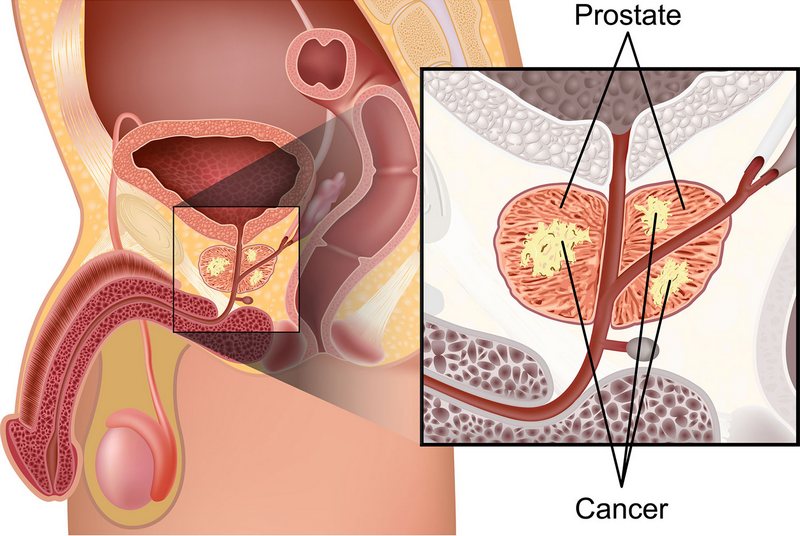ED Drugs in Prostate Cancer Treatment
My Canadian Pharmacy is concerned with the health of its clients, particularly men who have prostate cancer. Prostate cancer affects more than 18million men in the USA alone and in Canada, the figures are around the same, if not higher. 75% of men who undergo chemotherapy almost always develop secondary diseases. Some of these secondary diseases include erectile dysfunction and alopecia.
Prostate Cancer & Erectile Dysfunction Statistics
- 40% of men in their 40s are affected by ED – the number goes up each year
- Prostate cancer is the most common cancer in men – 26% of all cancer cases in men are prostate cancer
- 66 Canadian men are diagnosed with prostate cancer every day
The secondary disease that most men tend to care the most about is erectile dysfunction. Doctors who are dealing with patients suffering from erectile dysfunction as a secondary disease know that they have to treat the disease’s symptoms because the cause isn’t erectile dysfunction in itself, but is linked to the treatment of prostate cancer.
To help treat erectile dysfunction, doctors generally prescribe one of three medications – tadalafil (Cialis), sildenafil (Viagra) and vardenafil (Levitra). These drugs, however, have recently been the subject of much debate and discussion in the medical community because of their potential causative effects in leading to a recurrence in prostate cancer. As a result, erectile dysfunction drugs are being studied extensively by scientists and doctors the world over to see if there is, in fact, a link between these drugs and the recurrence of cancer in men.

Studies in Germany
We have analyzed data from several studies and these are our findings.
Cancer therapy is known for being a very harsh treatment option. It involves sending high energy radiation into the patient’s body at specific areas. This radiation while killing the cancerous cells, can also damage other cells around the targeted area.
In 2015, a study carried out in Germany on more than 4752 men indicated that there was a correlation between men using erectile dysfunction drugs and the biochemical recurrence of prostate cancer.
The study has rustled quite a lot of feathers in the medical community with some physicians now approaching the prescription of erectile dysfunction medication with more caution. The active ingredient in drugs that are typically used to treat erectile dysfunction such as Viagra (Sildenafil) are compounds known as phosphodiesterase type 5 inhibitors (PDE5i). It is this active ingredient that is believed to be one of the major causes of the biochemical recurrence.
The German scientists were surprised by the results. They had expected that erectile dysfunction drugs would actually be of more help to the treatment of prostate cancer but ended up finding that these drugs could actually be hindering treatment.
US & Swedish Studies
American urologist Stacy Loeb MD, from New York University said the research by the German scientists triggered her interest and she and her team decided to further the research and see if they could find another angle to the research.
Dr. Loeb and the researchers on her team decided to include research and data from other countries. They worked hand-in-hand with researchers in Sweden where they had access to the nationwide population-based National Prostate Cancer Register and the Prescribed Drug Register.
Statistics from this database revealed that between the year 2006 and 2007, from men who received chemotherapy treatment and who were followed up in the subsequent years, 293 had prostate cancer recurrence out of a total 6060 subjects. The rest of the men, 5767 in total didn’t show signs of a biochemical recurrence. Hence statistically this means that 4.8 men might face recurrence issues linked to using of erectile dysfunction medication.
A further analysis of these men showed that 51% of the men who had cancer return had used medication with the active ingredient PDE5i. In the other group, 58% of the men used erectile dysfunction medication. The three erectile dysfunction drugs that were taken by both groups were a combination of
- tadalafil (Cialis),
- sildenafil (Viagra);
- vardenafil (Levitra).
The numbers according to Dr. Loeb weren’t too significant to pose a general threat to the majority of men who were undergoing chemotherapy for prostate cancer. These men don’t need to fear that their erectile dysfunction medication could have implications in helping to bring back cancer. Dr. Loeb went on to say that after her and her team’s extensive research, they had to conclude that there was ‘no significant relationship between the use of medication with the active ingredient PDE5i and prostate cancer recurrence.’ Dr. Loeb’s findings were published in the journal European Urology in December 2015.
Conclusion
So what is the conclusion of this message? We summarized Dr. Loeb’s research findings. Dr. Loeb says that it isn’t anything to worry about and physicians should go on prescribing erectile dysfunction medication as they would normally. Some of the German authors were in agreement with Dr. Loeb’s findings while some disputed and said there was sufficient evidence to prove that there was a link, however small.
Another study carried out this time by Italian scientists supported Dr. Loeb’s findings. Using the Italian database they also discovered that the link between erectile dysfunction drugs and the recurrence of prostate cancer was marginal. Their findings have also been published in the European Urology journal.
The German study has had strong supporters, one of whom is Dr. Thorsten Schlomm who works at the Martini-Clinic Prostate Cancer Center at the University Medical Center Hamburg-Eppendorf, one of the largest prostate cancer clinics around. According to Dr.Schlomm, one probable reason for the difference in data was perhaps the fact that the men who took part in the study in Germany had more favorable prognosis compared to the Swedish patients whose tumors were more aggressive.
Hence it has been ruled out that erectile dysfunction drugs are not linked to the biochemical recurrence of prostate cancer in men. Doctors and patients alike can breathe a sigh of relief.







